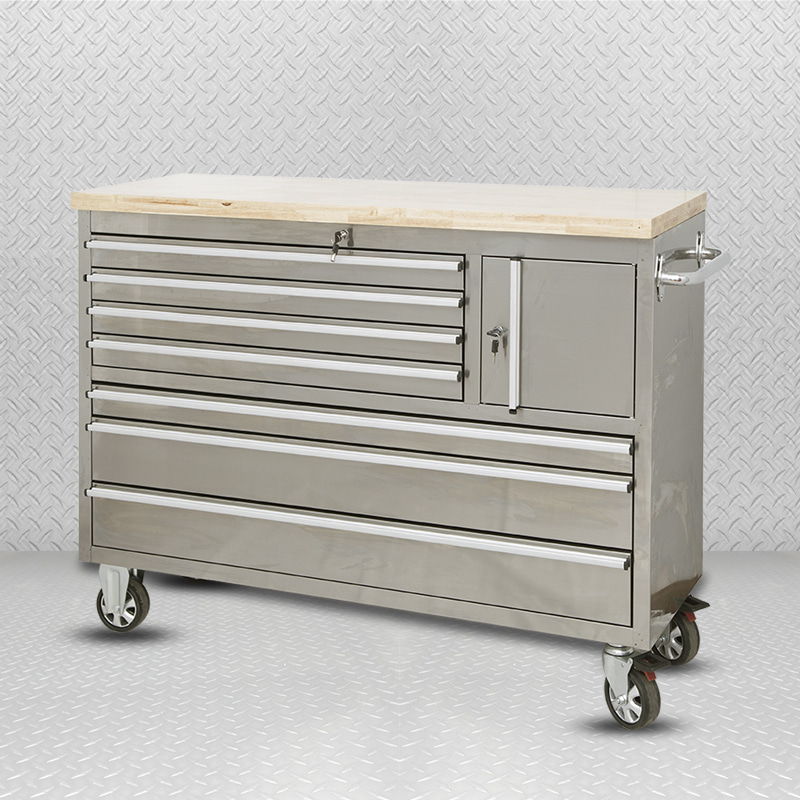To protect a wood-topped
workbench from moisture and damage, various coatings can be applied. The choice of coating depends on the specific needs of the workbench and the type of tasks it will be used for. Here are some common coatings used to protect wood-topped workbenches:
1. Polyurethane: Polyurethane is a popular and effective coating for wood surfaces. It provides a clear, durable, and moisture-resistant finish. Polyurethane coatings come in both water-based and oil-based forms, with the water-based option being more environmentally friendly.
2. Varnish: Varnish is a traditional wood finish that forms a protective layer on the wood surface. It is available in various finishes, from matte to glossy, and can provide resistance against moisture, abrasion, and chemicals.
3. Epoxy Resin: Epoxy resin is a strong, durable, and waterproof coating that can provide a glass-like finish to the wood surface. It is particularly suitable for heavy-duty workbenches or those exposed to chemicals and moisture.
4. Lacquer: Lacquer is a quick-drying finish that provides a protective layer with a glossy appearance. It offers decent moisture and abrasion resistance, although it may not be as durable as some other options.
5. Tung Oil: Tung Oil is a naturally penetrating coating that enhances the appearance of wood and provides some moisture resistance. Multiple applications may be required to achieve the desired protection.
6. Danish Oil: Danish oil is a blend of natural oil and varnish that penetrates the wood and provides a low-sheen, protective finish. It offers moderate moisture resistance and is relatively easy to apply and maintain.
7. Wax: Wax can be used to seal and protect wood surfaces. While it provides some moisture resistance and enhances the appearance of the wood, it may need more frequent reapplication than other coatings.
8. Shellac: Shellac is a natural resin-based finish that dries quickly and provides moderate protection against moisture and abrasion. It is often used as a sealer or primer before applying other finishes.
When choosing a coating for your wood-topped workbench, consider the following factors:
Moisture Resistance: If your workbench is exposed to moisture or humidity, choose a coating that provides strong moisture resistance, such as polyurethane or epoxy resin.
Ease of Application: Some coatings require multiple coats and extended drying times, while others are more straightforward to apply. Consider your expertise and time constraints.
Appearance: Different coatings can result in varied appearances, from a matte finish to a glossy sheen. Choose a finish that complements your workspace's aesthetics.
Before applying any coating, it's essential to prepare the wood surface by sanding it smooth and removing any dust or debris. Follow the manufacturer's instructions for the selected coating to ensure proper application and drying times.










